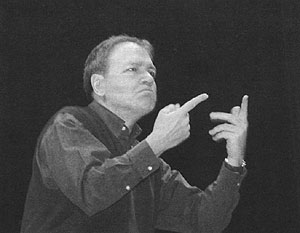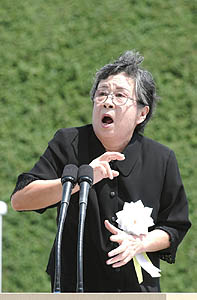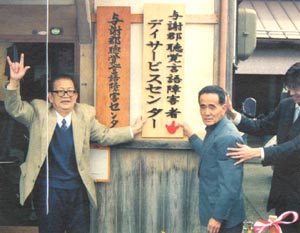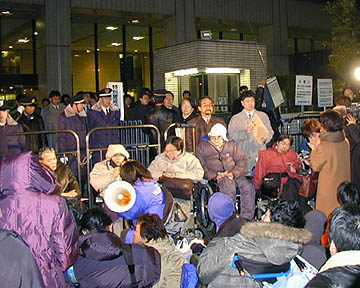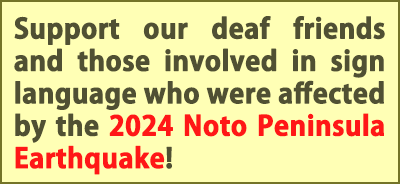from July 2003 Issue of Japanese Deaf News, JFD’s monthly newspaper:
“Bangkok Recommendations” Adopted
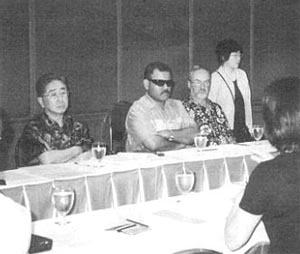
Expert Group Meeting and Seminar
(WFD Board Member Eiichi Takada on left)
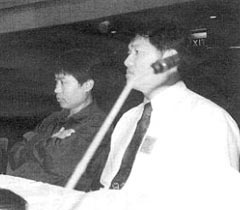
Executive Committee Members of the
National Association of the Deaf in Thailand
attending the Expert Group Meeting and Seminar
The United Nations Economic and Social Commission for Asia and the Pacific (UNESCAP) hosted the “Expert Group Meeting and Seminar on an International Convention to Protect and Promote the Rights and Dignity of Persons with Disabilities” from June 2-4, 2003 at the UNESCAP Conference Center in Bangkok, Thailand. Eiichi Takada of Japan attended the meeting in his position as Board Member of the World Federation of the Deaf (WFD).
The meeting opened with an address by Mr. Kim Hak-Su, Executive Secretary of UNESCAP and the presentation of a message sent by Ambassador Luis Gallegos of Ecuador, who is the Chairman of the UN Ad Hoc Committee on the International Convention on the Rights of Persons with Disabilities.
The conference was attended by about 130 people, including representatives of SHO of persons with disabilities, governments, UN agencies, related bodies, and resource persons. Among the attendees were Mr. Abdullah Wardak, Minister of Martyrs and Disabled of Afghanistan, Mr. Andrew Byrnes, Professor of the Faculty of Law of the Australian National University, Mr. Clinton Edward Rapley, and others. Discussions and presentations centered on the contents of the proposed International Convention on the Rights of Persons with Disabilities. On the last day, the conference adopted the “Bangkok Recommendations on the Elaboration of a Comprehensive and Integral International Convention to Promote and Protect the Rights of Persons with Disabilities”. The conference itself and the Bangkok Recommendations reveal that UNESCAP is strongly committed to the realization of the convention.
Continue reading →
